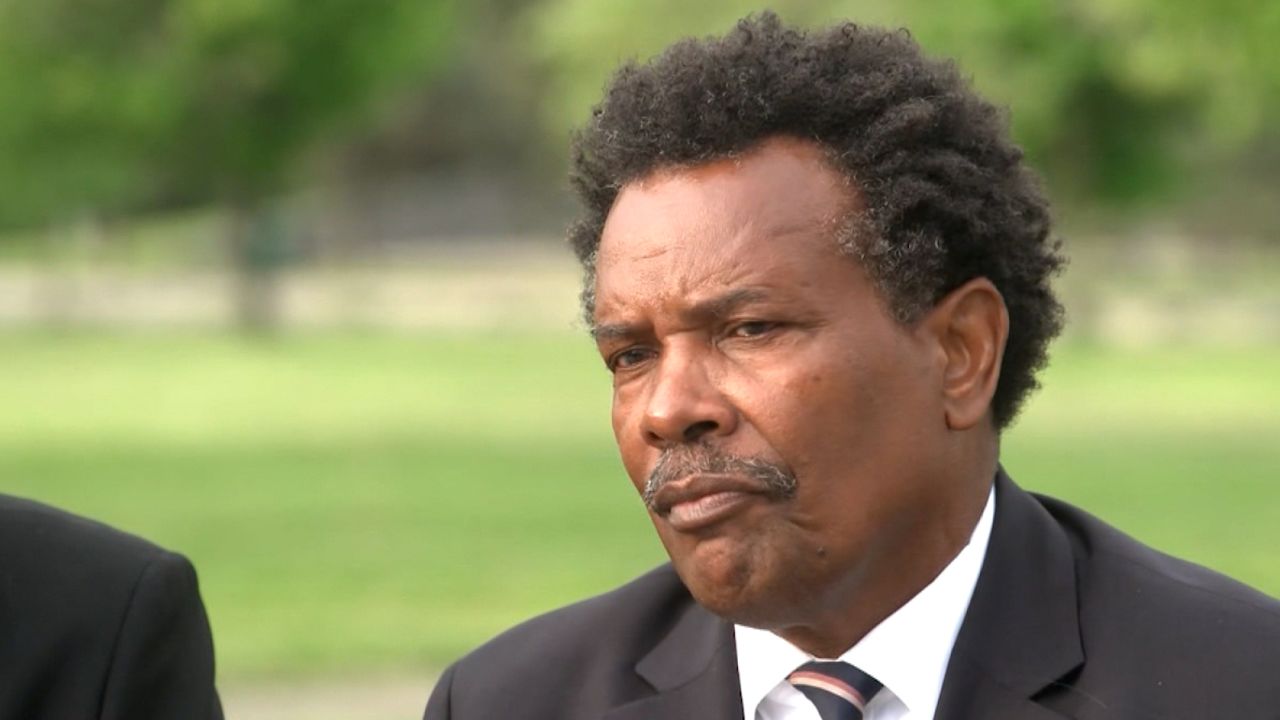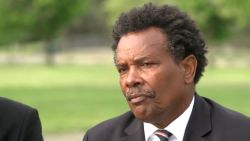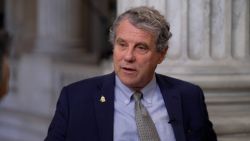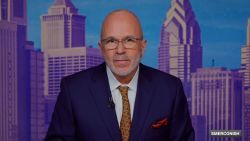Editor’s Note: Sign up to get this weekly column as a newsletter. We’re looking back at the strongest, smartest opinion takes of the week from CNN and other outlets.
Shortly after Donald Trump was elected President of the United States, Nobel laureate Toni Morrison wrote in The New Yorker: “Unlike any nation in Europe, the United States holds whiteness as the unifying force. Here, for many people, the definition of ‘Americanness’ is color.” Reflecting on efforts – largely by White men – to define themselves by sustaining that poisonous definition, Morrison argues that those “who are prepared to abandon their humanity out of fear of black men and women, suggest the true horror of lost status.”
In Morrison’s formulation, fear-driven devotion to racial status is more powerful to many White Americans than even self-interest, shame or any belief in humanity. And it is this reality, that White Americans’ anxieties in the face of a changing country have been and continue to be weaponized with disastrous and violent results, that has been instrumental in fueling the spread of so-called “replacement theory,” the false and bigoted claim that elites are conspiring to replace Whites with minorities.
Morrison passed away in 2019, but her words echoed with a prescient rattle this week. They hovered, hauntingly, over a Tops grocery store in a majority-Black East Buffalo neighborhood, where a young White man livestreamed the racist mass killing of 10 people. The alleged shooter also posted a hateful rant self-identifying as a White supremacist and expressing a belief in replacement theory.
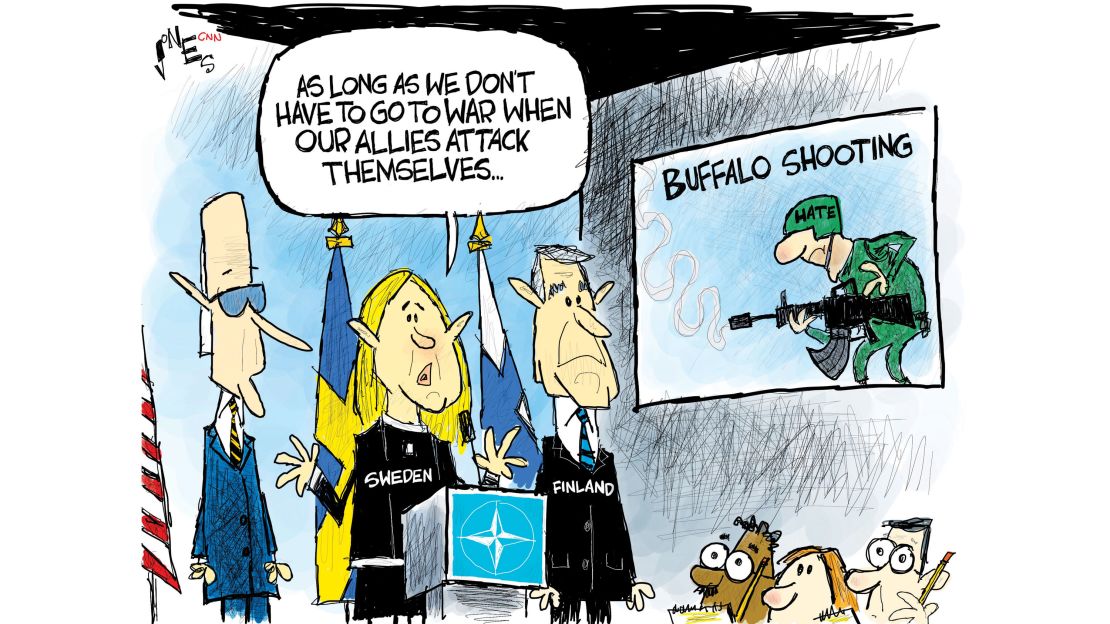
“Racism, anti-Semitism and a resentment of immigrants are nothing new,” emphasized Frida Ghitis. “What is new is that in America, a land of diversity and immigrants, what used to be a fringe theory has found sympathetic voices in one of the two main political parties.”
Ghitis diagnosed deep irony that the “growing threat to democracy in the United States is occurring at a moment when US foreign policy has accomplished an extraordinary, historic feat; one that among other things serves to fortify democracy around the world.” That feat? Shoring up NATO, which is attracting new members, and leading America’s allies with a cohort that may soon include Sweden and Finland. “It’s a high point in America’s global leadership,” Ghitis concluded, “but only if you look at it with one eye closed.”
Like Morrison, theologian and activist Keith Magee pondered the brutal, dehumanizing cost of a race-fueled fear of change on all Americans. Writing specifically as a Black father of a young Black son, Magee addressed White teenage males after the slaughter in Buffalo to express empathy with the change and trauma of 21st century pandemic life – and ask a question.
“Because you are male, you were born a winner of the patriarchal jackpot. You are more likely to rise to the top of the career ladder and will be better paid on your way up. The state will not attempt to dictate what you can and cannot do with your own body. On top of that, because you are White, and you live in a country that is structurally racist, you enjoy the huge privilege your skin color gives you … My question to you is this – what are you going to do with all that luck?”
He urged young White American men to consider that “luck, like love, is unlimited. The more you share it, the more there is to go around. You will not lose your place in the world if other people are no longer marginalized.”
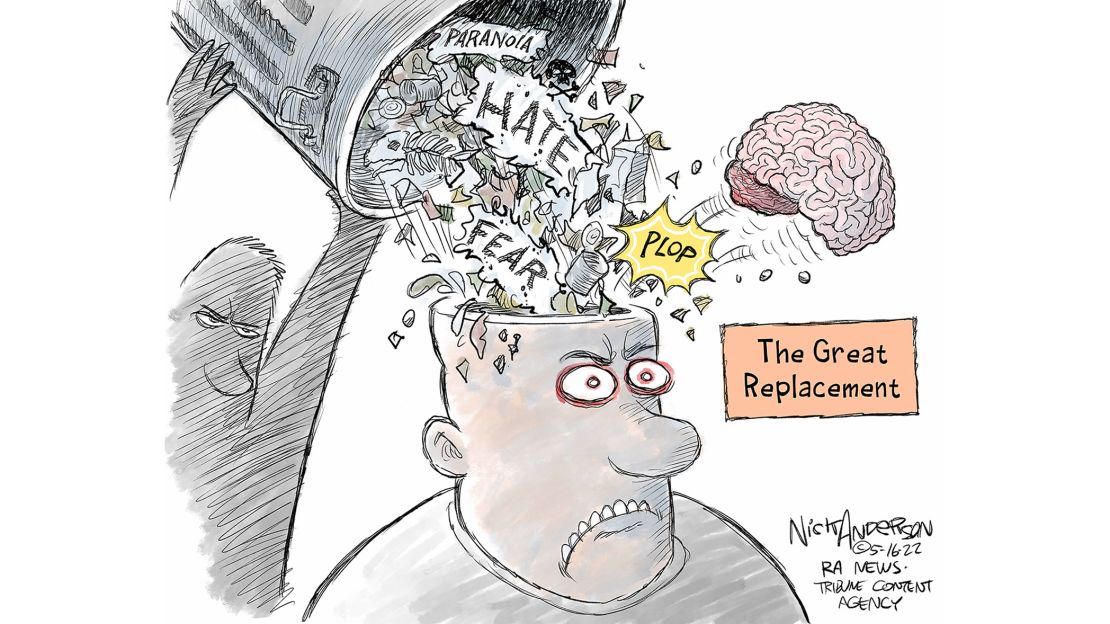
Dean Obeidallah rejected the toxic notion that Whiteness could ever define American identity, arguing that that “demographic change is nothing to fear in America. In fact, it’s part of what makes our nation so exceptional … It’s why on the Great Seal of the United States we see the words in Latin, ‘E Pluribus Unum’ – which means ‘Out of Many, One.’ Those who reject that philosophy to instead embrace the ‘Great Replacement Theory’ are literally rejecting what it means to be American.”
In the wake of a horrific event like the Buffalo massacre, people understandably search for solutions, noted Nicole Hemmer, who observed that the “problem of radicalization and right-wing violence is a deeply entrenched and difficult one, one with complexities that require a society-wide approach across political and social institutions to address … That endeavor is made more difficult by staunch conservative opposition to necessary reforms. Which doesn’t mean it will be impossible to defang right-wing radicalism, but rather that Americans will have to enact systemic changes over the long-term to bring that violence under control.”
For more:
Peniel E. Joseph: Buffalo is part of an unfolding American tragedy
Peter Bergen: Deadly shootings like the one in Buffalo could be prevented
Putin’s useful allies
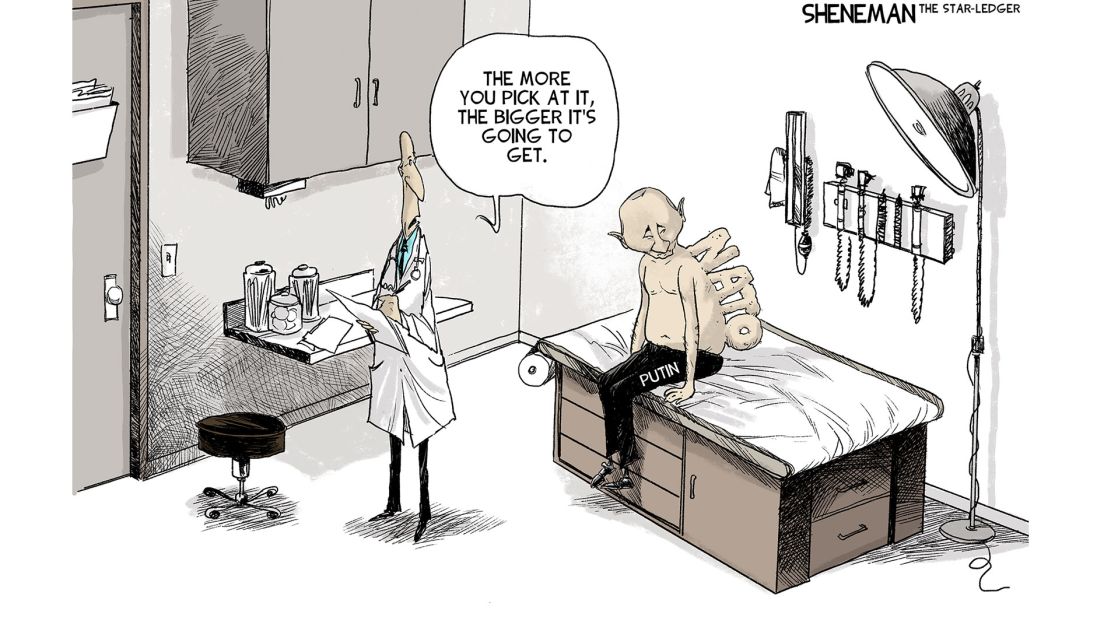
The prospect of Sweden and Finland’s entry into NATO may be a sign of US global leadership to some, but to others – notably Turkish President Recep Tayyip Erdogan, it’s not a development to be looked at “positively.” Between Erdogan in NATO and Hungarian Prime Minister Viktor Orban in the European Union, Putin has “just enough allies in just enough places to throw a wrench in the efforts of Western alliances to thwart his ambitions – deepening the wedge between member states that suits his purposes to a tee,” wrote David A. Andelman. “Now is the time for democracies to dig in their heels and proclaim that enough is enough.”
Lincoln Mitchell described the palpable concern in other countries about a possible Russian invasion. Drawing on his time in Tbilisi, Mitchell assessed that “Georgia is a reminder that while US President Joe Biden has consistently, and rightly, expressed concern that escalating the war could lead to a direct conflict between Russia and NATO and possibly even a ‘third world war,’ there are other places where the war could expand … Unlike today in Ukraine, the rest of the world did essentially nothing” when Putin invaded Georgia in 2008. “Some here fear the west would respond similarly if Russia invaded again. Others with whom I spoke believe that the western unity and steadfastness against Russia and in support of Ukraine would extend to Georgia in the event of an invasion. Most would rather not find out.”
Regarding the threat Putin poses in the region, Timothy Snyder argued in The New York Times that recognizing fascism isn’t the same as fighting it. A time traveler from the 1930s would have no difficulty identifying the Putin regime as fascist, he wrote. “We understand more about fascism than we did in the 1930s. We now know where it led. We should recognize fascism, because then we know what we are dealing with. But to recognize it is not to undo it. Fascism is not a debating position, but a cult of will that emanates fiction.”
Primary chaos

All US political eyes were on North Carolina and Pennsylvania this week – with more action to come on Tuesday in Georgia. With Madison Cawthorn’s defeat and Ted Budd’s victory in North Carolina, plus primary wins for Big Lie proponent Doug Mastriano and unorthodox Democrat John Fetterman in Pennsylvania – where the GOP contest for US Senate remains too close to call – there was no one takeaway for conservatives, progressives or anyone in between.
With a mixed primary score card for Trump-endorsed candidates, Doug Heye insisted that it’s time to stop viewing the former President as a bellwether for the GOP – or treating his endorsement as a golden ticket.
Peggy Noonan said in The Wall Street Journal that “something new is being built, and it involves the widening of the Republican Party in terms of who wants to join and whom its voters will support.”
The widening of the GOP ranks to include Elon Musk raised SE Cupp’s eyebrows, at least after she heard his reasoning. In the latest episode of “Unfiltered,” Cupp argued that Elon Musk can’t possibly be voting Republican to escape hate and division, as he has contended on Twitter. She said “joining the GOP to get away from division and hate seems a little like joining the Girl Scouts to get away from Thin Mints, but, hey, it wouldn’t be 2022 if some power-hungry, attention-loving man wasn’t gaslighting the country, just for fun.”
For more:
David Thornburgh: Pennsylvania has a primary problem
Julian Zelizer: Dark clouds are on the horizon for Democrats
Covid isn’t over
More than one million people have died of Covid-19 in the US, and cases are surging once again as the highly contagious BA.2.1.21 subvariant has become the nation’s dominant strain of coronavirus.
Michael Gerson wrote for The Washington Post about recovering from his first (and as he put it, hopefully last) bout with Covid when he learned that the US had surpassed the million-fatality mark. He expressed gratitude for vaccines and boosters – “earlier in the crisis, an immunocompromised man in his late 50s, as I am, might have ended up in the hospital, on a ventilator, a coin flip away from eternity” – but also dread for what’s to come if cases to continue to rise. Most Americans “still float down covid river,” he marveled, “living in denial of the rocks ahead: new variants, long covid, continuing deaths.”
The nightmare scenario is unfolding in North Korea, as the unvaccinated country faces its first major outbreak of Covid-19. Dr. Kee B. Park, who has worked along with surgeons in the country countless times over the past 15 years and witnessed firsthand the resourcefulness of medical staff in stretched hospitals there, pleaded: “We need to help North Korea immediately. Given the entire population has yet to be vaccinated, the death toll could be unprecedented … All sides need to have their eyes on containing the pandemic. It’s in everyone’s interest to help North Korea contain this outbreak – and prevent future ones.”
What women see in Amber Heard
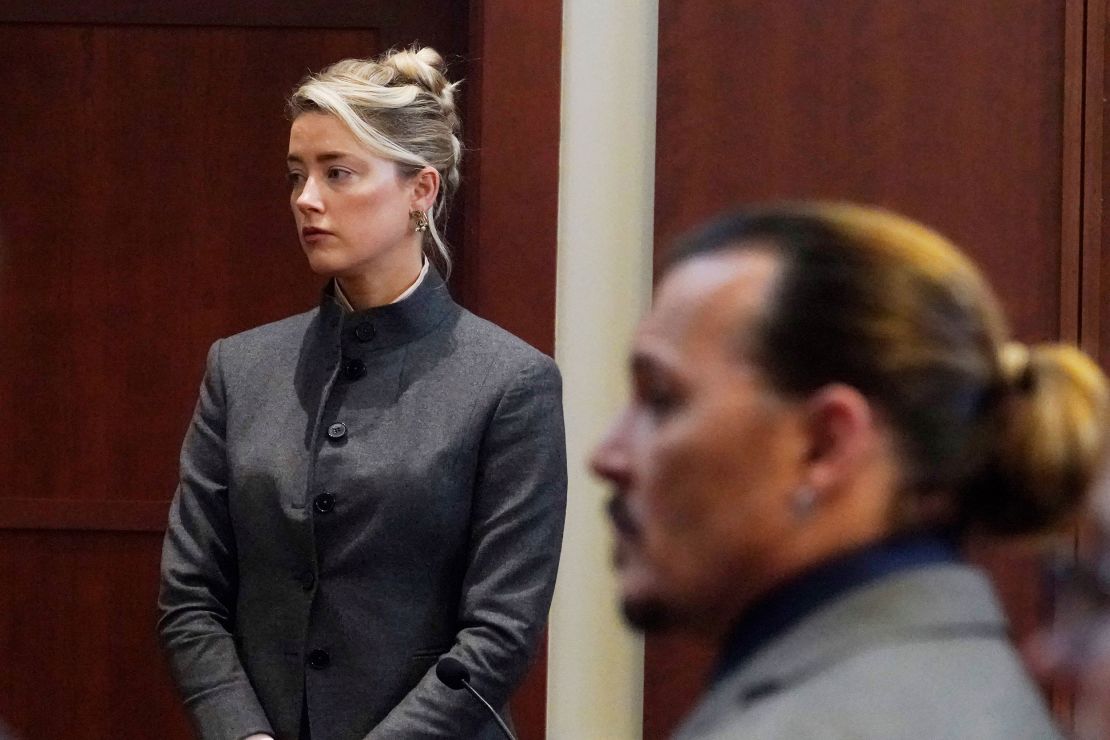
To many observers, the Johnny Depp-Amber Heard trial looks like a battle between two unreliable narrators. But some see it, Jill Filipovic pointed out, as more like a simplistic morality tale: “a hero being brought down by a scheming wench; a good man taken in by a bad woman.” But the moral of that story is a toxic one for abuse victims, argued Filipovic, because “ironically – or perhaps predictably – the protestations of Depp’s total innocence have turned into online mobs swarming anyone who disagrees and believes that Heard is the victim. These self-styled defenders of Depp, an alleged abuse victim, are happily partaking in misogynist abuse online. And, in the meantime, domestic violence victims and abusers alike are watching this play out. The lesson seems to be that who is believed in a situation in which there are mutual accusations of domestic violence will depend on popularity – and that men will be given the benefit of the doubt, while women will be ridiculed for their tears.”
These athletes deserve more

With the announcement of a new collective bargaining agreement with landmark provisions for equal pay, soccer is poised to lead the way on how to combat the consequences of the long-standing lack of investment in all women’s sports, wrote Amy Bass.
It’s worth noting that the agreement comes just weeks before the 50th anniversary of Title IX. Meanwhile, WNBA star Brittney Griner is still being held in Russia. Bass wrote, “Griner plays in Russia because her US paycheck pales in comparison to the star salary she earns there. One can only hope that this new soccer agreement creates enough pressure for other elite sports organizations to get their equity ducks in a row to address pay gaps that have left athletes like Griner vulnerable. We must set aside the idea that women should be paid only if and when their play is valued – commercially and culturally – as much as the men.” That approach, Bass contends, shows blindness to all the ways in which men’s professional sports are profitable today only because of decades of public investment in them.
Sports Illustrated rolled out its annual swimsuit issue this week with cover models Yumi Nu and Maye Musk – and a photo spread of star players for the WNBA. Including a variety of body types, ages, sexual orientations and gender identities “could be seen as progress,” wrote Frankie de la Cretaz. But the glamorized, sexed-up photos of elite athletes who compete in a league that is largely composed of Black and queer players – and the language used by the magazine and the league to promote the photo spread – also felt like a step back in time, and not in a good way, wrote de la Cretaz.
Don’t miss:

Dalia Hatuqa: My friend Shireen Abu Akleh told the stories no one else wanted to tell
John Sutter: Orange County fires magnify a stunning truth about climate change
Susan Harris Rimmer: How Australia’s ‘mate-ocracy’ created a toxic Parliament
Akanksha Singh and Roshan Abbas: In the world’s largest democracy, ‘looking Muslim’ could cost your life
Rep. Pramila Jayapal and Deepak Bhargava: Standing up for immigrants is part of America’s foundation
Sherlock Holmes Day
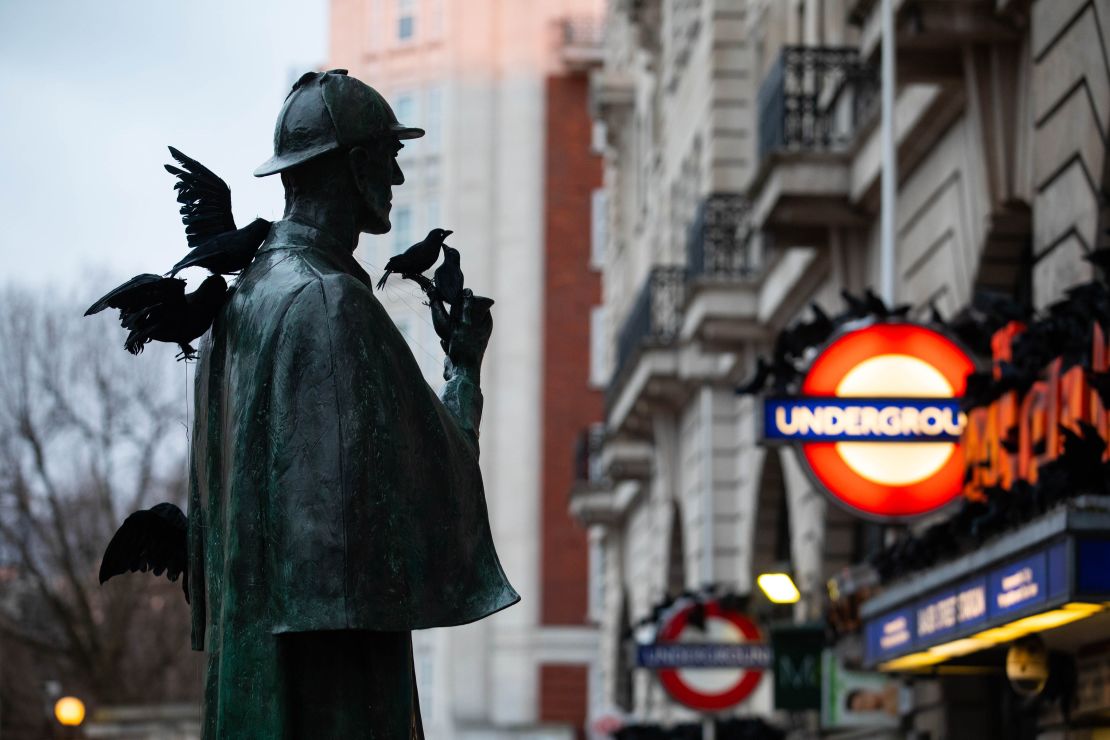
Did Sherlock Holmes (meaning Sir Arthur Conan Doyle) invent crime-solving methods like fingerprinting and blood testing years and even decades before law enforcement? That’s Roy Schwartz’s question, posed for the occasion of Sherlock Holmes Day, which is celebrated on Doyle’s birthday, May 22.
The answer is complicated, but Schwartz took a deep dive into the literary history of Holmes and the scientific history of blood and document evidence, fingerprints and more, concluding that while not the inventor of modern forensic science as legend would have it, Holmes was – and is still – a fictional character who changed the science of solving crime.
Schwartz’s verdict: “What’s fair to say is that Sherlock Holmes was indeed a significant influence on the field of forensic science. He made its ideas accessible to the masses, popularized it as a unified field of knowledge, and inspired generations of criminal justice professionals who went on to solve crimes and save lives. That’s anything but elementary.”
CNN Opinion won’t be putting out a newsletter next week, but we’ll be back in action on June 5. To all of our readers who observe Memorial Day, we wish you a meaningful, restorative holiday!
